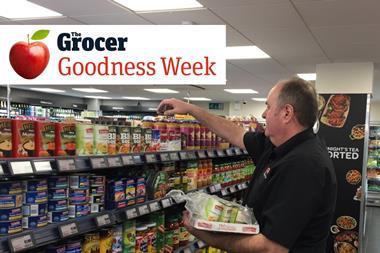
So-called ‘experts’ eh? Nothing more than sanctimonious wise guys. Puffed up by prestigious degrees and years of experience they smugly dole out their self-righteous advice all based on copious tests and trials and blah de blah. Who needs them when, as CAMRA pointed out this week, you have good old-fashioned common sense.
This gut instinct (and years of our own copious tests down the pub, thank you very much) has led more than half of consumers to conclude the new alcohol guidelines from experts at the Department of Health are utter rubbish, according to the lobby group. Earlier this year, the DH slashed recommended intake for men by a third to only 14 units per week, the same as for women. Complete drivel from the Chief Medical Officer, if you ask 51% of the 2,000 surveyed by CAMRA. Those professorships, doctorates and masters coming out of Dame Sally Davies’ ears did nothing to convince the majority that she might know what she was talking about.
It’s a worrying wave of anti-intellectualism that’s spilled over from politics, most recently fuelled by MPs keen to dismiss inconvenient truths in the run-up to the referendum on Europe. “People in this country have had enough of experts,” chortled Michael Gove (back before his swift demotion) as he dismissed economic predictions of doom and gloom post-Brexit. Crass cynicism that could be brushed aside were it not for the 51.9% of voters that seemed to side with him – coincidentally the same proportion dismissive of the latest expert advice on alcohol, according to CAMRA’s research.
Our unhealthy cynicism for the views of the elite, the educated and the highly experienced clearly doesn’t stop at the doors of Westminster. Consumers are also fed up of being told what to eat and drink by members of an establishment they regard as deeply untrustworthy.
Sympathetic as I might be to this mistrust (it’s hard to have faith in a prime minister that just granted Boris Johnson free run of our foreign policy, after all) it’s a dangerous development when it seeps into how seriously we take warnings on health. Rights and wrongs in politics are distinctly burry, but we shouldn’t lump expertise from highly regarded doctors in with economic forecasts or political think tanks.
To ensure that doesn’t happen, the likes of the Department of Health should look again at how they package advice and guidelines. Being told by doctors dripping in qualifications that we must ‘do as I say’ and think of breast cancer each time we sip a glass of wine simply won’t cut it. Greater transparency with the raw data, a more nuanced and less condescending approach, and a more sparing use of experts to deliver the message might all help reduce our new distaste for the establishment.
And as for CAMRA, it might want to think twice before fuelling anti-expert rhetoric that helps it, and its members, in the short term. If Gove is any measure, they might win this battle – but they’ll struggle to emerge from the war unscathed.



















No comments yet